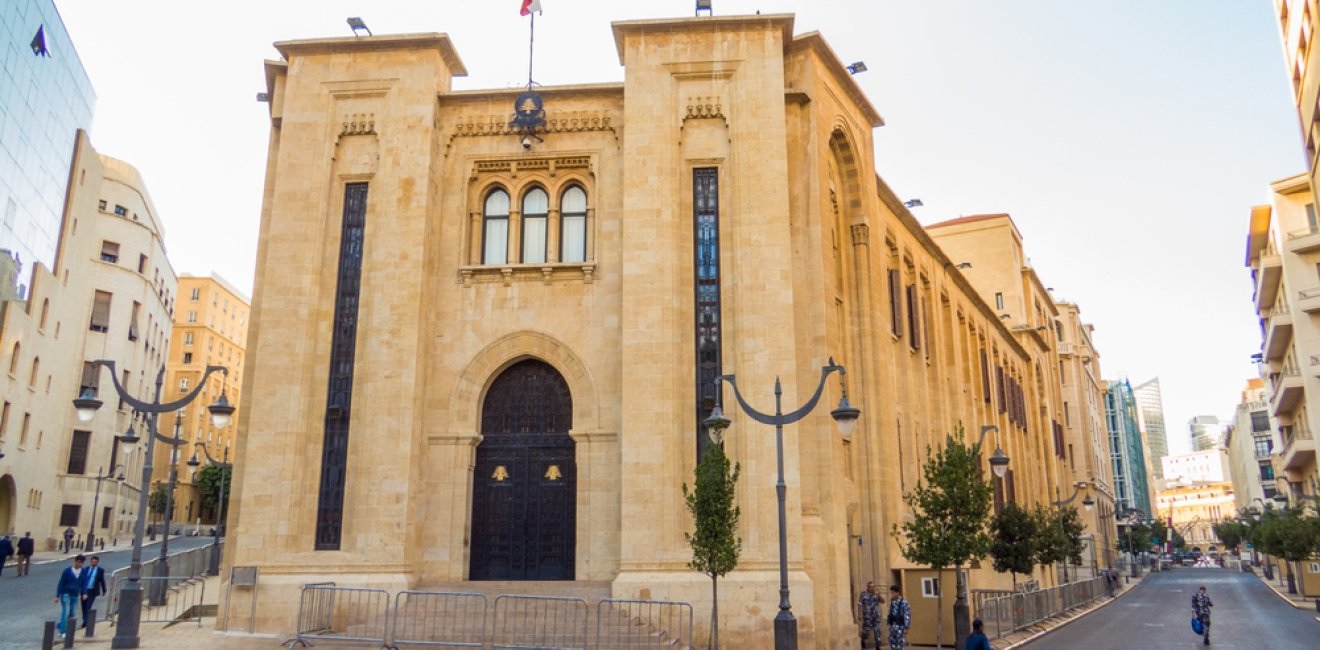
A blog of the Middle East Women's Initiative
Lebanon’s parliamentary elections are this Sunday. Generally speaking, there is no cause or hope for celebration. The country is in the midst of crushing simultaneous political, financial, socioeconomic and immigration crises that all have no end in sight. Hyperinflation is rampant, poverty has become endemic, and none of the major political parties that represent the entrenched political class seem to have a real plan to extract the country from this downward spiral.
Amid this, however, is the smallest of silver linings: more women than ever are running for political office. Specifically, 118 women are running for seats in the country’s 128-seat parliament, out of a total 1,043 candidates. This represents a 37 percent increase compared to the previous election. These women, and others like them, are desperately needed in Lebanon to create any kind of meaningful change.
We shouldn’t be pollyannaish – a fair number of these women are running for the same corrupt political parties that ran the country into this mess. While others are running as part of civil society reform movements, even if a fair number from both camps win seats, they’re unlikely to band together to try to enact the wholesale political changes the country needs simply because they are female.
All Lebanese women have to deal with a patriarchal system that, on some level, they know needs to change so the whole country can move forward on all fronts.
That said, having more women in leadership positions will help increase the odds of a better future for Lebanon. All Lebanese women have to deal with a patriarchal system that, on some level, they know needs to change so the whole country can move forward on all fronts.
How do we know this? For one thing, the journey to becoming a candidate for many, if not most of them, could not have been easy.
Lebanon is progressive compared to the rest of the region, yet women were almost completely absent from politics until 1992. This is surprising given Lebanon was one of the first countries in the Arab region to accord women equal rights to participate in politics in 1953, and later passed a law in 1963 establishing equal rights for men and women to vote and to run for office.
There were just two women in parliament between 1963 and 1992 – Myrna Boustani, who took over the seat of her wealthy businessman father Emile after he died in a plane crash off the coast of Beirut, and Nayla Moawad, who took over the seat of her assassinated husband, the former president Rene Moawad, a Maronite Christian known for his moderate views, in 1991. Between 1992 and 2009, there were usually between three and six women in parliament.
In 2016, the country created the role of Minister of State for Women’s Affairs – and promptly appointed a 62-year-old man to the position.
In 2008, the government announced it was finally going to take real steps to integrate women into the financial, economic, social, and political sectors. But in 2016, the country created the role of Minister of State for Women’s Affairs – and promptly appointed a 62-year-old man to the position.
Fast forward to the last elections in 2018 where there was a record 86 women candidates. However, after the dust settled, again only six women were seated in parliament, accounting for less than five percent of the seats. Moreover, only four women were appointed as cabinet members, less than 10 percent of the cabinet.
In short, Lebanese women gained suffrage in 1953, yet only a total of 17 women have served in parliament.
Why? Because it is very difficult for women to run for parliament, even today.
First, the fee to run in the parliamentary election is roughly 30 million Lebanese Lira, which is currently about USD 1,500. With hyperinflation having cost the Lira more than 90 percent of its value, that amount is beyond the reach of many political aspirants. Political parties sometimes foot this bill, but they have shown strong preference for male candidates, so women candidates are often told they must pay it themselves if they want to stand. Moreover, only 15 percent of working-age women in Lebanon are employed, compared to 47.4 percent of men, making it even more difficult for them to cover the cost.
Furthermore, if a woman is able to cover the cost to run, she will also likely need to fund her own campaign for the same reason. As Joelle Abou Farhat, co-founder of Fifty-fifty, an NGO that promotes gender equality in the private and public sectors, told L’Orient Le Jour: “The cost of appearing in the media is exorbitant. The candidates who have fresh dollars are the ones capable of having media visibility.”
The next hurdle for women candidates is to join or create a list. You cannot run without a list, which comprises candidates for at least 40 percent of the seats in a major district, as well as at least one seat in each minor district. This year, 155 women registered for the race but only 118 remained in it, mostly due to their inability to join a list.
The government in Lebanon is still a conservative workplace, run by men who have been in power for several generations. Some older politicians will even say privately that women are not meant to be in politics and the main Shiite party Hezbollah , designated a terrorist organization here in the United States, does not allow any women to run under their banner. “In Lebanon, MPs offer condolences, participate in weddings and provide services, and we in Hezbollah do not accept that our women carry out such duties,” Hezbollah Secretary-General Hassan Nasrallah was quoted as saying by Arab News.
Politics in Lebanon is also a family business where the sons inherit the seats of their fathers, whether they deserve it or not. In some rare cases, women are chosen to represent their deceased husbands or brothers. As UC Davis’s Professor of Anthropology and Gender, Sexuality, and Women's Studies Suad Joseph once wryly noted, female parliamentarians in Lebanon always come to work dressed in black.
Women also often need their family’s support to run for office and “wasta” influence from their family’s network, which means she must adhere to a certain set agenda. Women who dare to run for office without their family’s support are often subject to intense pressure and verbal harassment, sometimes even threats.
These realities make the fact that 118 women candidates in this weekend’s election all the more impressive – and people seem to have noticed.
These realities make the fact that 118 women candidates in this weekend’s election all the more impressive – and people seem to have noticed. Many of the Lebanese voters I’ve spoken with in recent days, both in the country and abroad, keep saying “inshallah this time seems better” or “with the new faces running this year, I’m sure I’ll see the change in my lifetime.”
Betting on progress in Lebanon is always a long shot, but for today at least I have a slither of hope.
Author

Gender in Business Specialist

Middle East Program
The Wilson Center’s Middle East Program serves as a crucial resource for the policymaking community and beyond, providing analyses and research that helps inform US foreign policymaking, stimulates public debate, and expands knowledge about issues in the wider Middle East and North Africa (MENA) region. Read more


Middle East Women's Initiative
The Middle East Women's Initiative (MEWI) promotes the empowerment of women in the region through an open and inclusive dialogue with women leaders from the Middle East and continuous research. Read more

Explore More in Enheduanna
Browse Enheduanna
Women are the Catalysts for Change in Lebanon

How Education Can Empower Young Women in MENA


